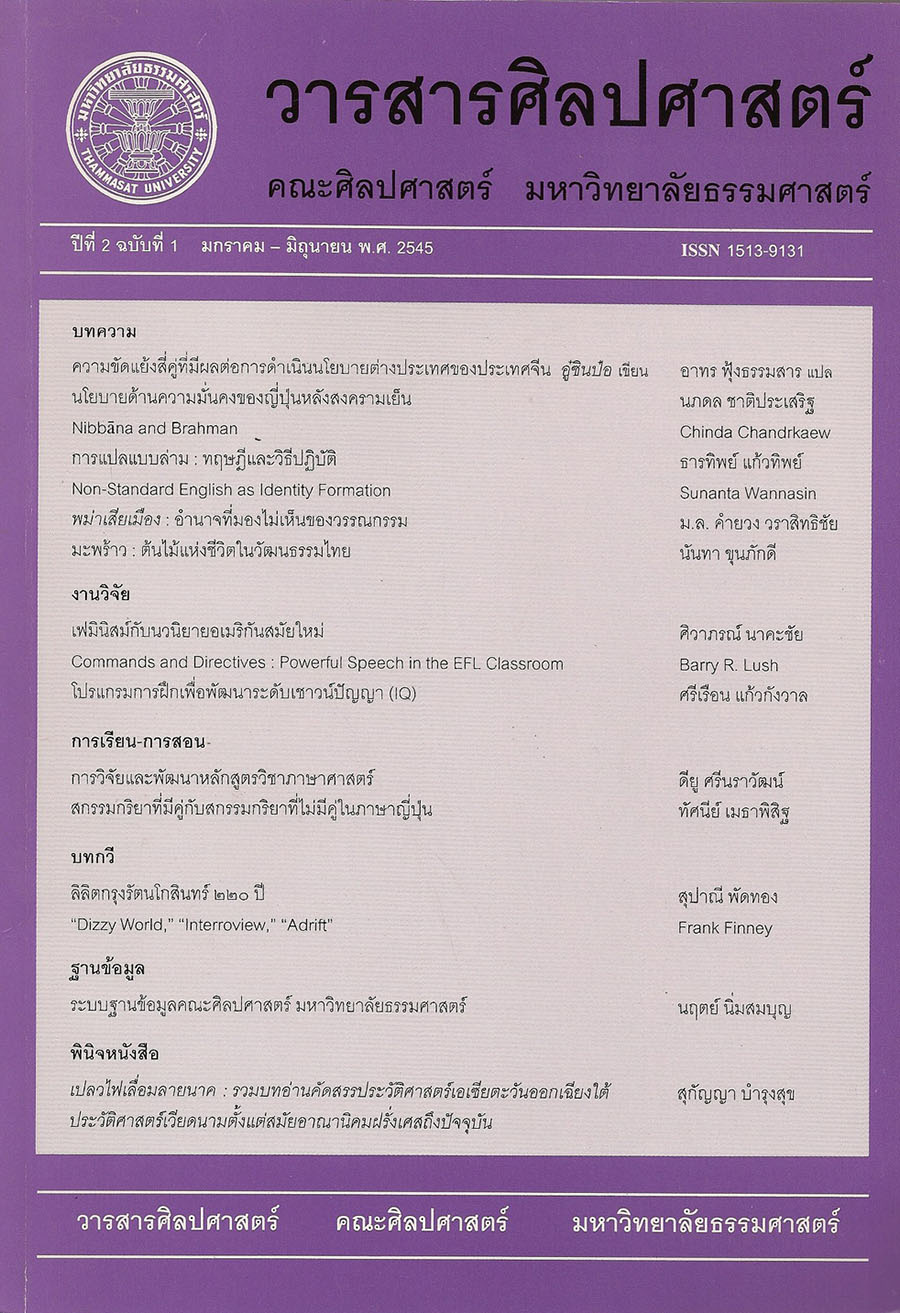นโยบายด้านความมั่นคงของญี่ปุ่นหลังสงครามเย็น
Main Article Content
บทคัดย่อ
ในช่วงสงครามเย็นนั้น นโยบายต่างประเทศด้านความมั่นคงของญี่ปุ่นผูกพันอย่างแน่นแฟ้นกับยุทธศาสตร์ของสหรัฐอเมริกาในการต่อต้านลัทธิคอมมิวนิสต์ในภูมิภาคเอเชีย เมื่อสงครามเย็นสิ้นสุดลงในช่วงต้นทศวรรษที่ 1990 พร้อมกับโครงสร้างของการเมืองระหว่างประเทศในระดับโลกที่เปลี่ยนแปลงไป จึงเป็นที่เชื่อกันในขณะนั้นว่านโยบายต่างประเทศด้านความมั่นคงของญี่ปุ่นจะมีการเปลี่ยนแปลงไปโดยญี่ปุ่นจะเข้าไปมีบทบาทในด้านความมั่นคงระหว่างประเทศมากยิ่งขึ้น อย่างไรก็ตามปัจจัยหลายประการ เช่น ประสบการณ์ในทางลบของประเทศเพื่อนบ้านต่อความก้าวร้าวของญี่ปุ่นในช่วงสงครามโลกครั้งที่สองข้อจำกัดของรัฐธรรมนูญรวมทั้งมติมหาชนในญี่ปุ่น ล้วนเป็นอุปสรรคต่อการปรับนโยบายต่างประเทศของญี่ปุ่นไปในทิศทางดังกล่าว ดังนั้นในช่วงทศวรรษที่ผ่านมา นโยบายด้านความมั่นคงของญี่ปุ่นจึงมีการเปลี่ยนแปลงไปในขอบเขตที่จำกัดมาก โดยที่ญี่ปุ่นยังคงดำเนินนโยบายที่ผูกพันอย่างแน่นแฟ้นกับนโยบายด้านความมั่นคงของสหรัฐอเมริกาในภูมิภาคเอเชียแปซิฟิค แม้ว่าญี่ปุ่นจะได้เพิ่มบทบาทร่วมกับองค์การสหประชาชาติในการร่วมรักษาสันติภาพมากขึ้น แต่บทบาทดังกล่าวก็ยังอยู่ในขอบเขตที่จำกัดมากเมื่อเทียบกับศักยภาพทางเศรษฐกิจของญี่ปุ่น นอกจากนั้นความร่วมมืออย่างใกล้ชิดกับสหรัฐอเมริกาในปัจจุบันยังอาจทำให้ญี่ปุ่นต้องถูกดึงเข้าไปเกี่ยวข้องกับความขัดแย้งระหว่างสหรัฐอเมริกากับจีนซึ่งเป็นสิ่งที่ญี่ปุ่นไม่ต้องการให้เกิดขึ้น
During the cold war era, the alignment in the Japan-US relations was very tight. Japanese policy makers joined the Americans in the cold war against the expansion of communism in the East Asia region. In the post cold war era, it was believed that Japanese foreign policies would be changed to become more flexible. However, there are several factors, such as the unfavorable experiences of the Asia about the Japanese aggression during World War II and the article 9th of the Japanese constitution as well as Japanese public opinion, which are perceived as reasons in obstructing this change. For these reasons, Japanese foreign policies during the past decades have not been significantly changed. Japan has followed the United States’ policies in most of the arena, especially in policy concerning the security dimension. Although Japan has taken more active role in security issues by participating in the United Nations peace keeping operation in several countries, this role is considerably limited compared to Japan’s economic strength. Besides, while close US-Japan cooperation ensures Japan well in the security dimension, it might push Japan to be involved in Sino-US conflict, which Japanese policy makers would not want it to happen.


